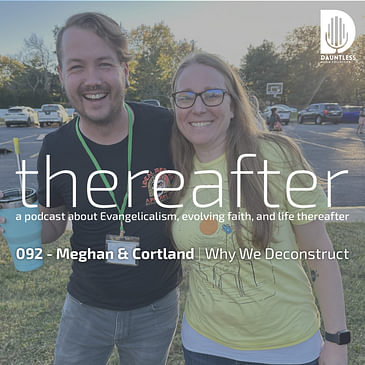No guest this week! Instead, Meghan and Cortland catch up about the conversation that seems to be constantly coming back up from evangelicals on the internet, which is, WHY WE'RE ALL DECONSTRUCTING. We'd love to hear from you too, so if you are wanting to drop us a text note or voice memo we'd love to hear from you! You can email those to us at Hosts@ThereafterPod.com. Please let us know in the email if you would be ok with the message or voice note being featured on an episode. If you're interested in attending the event we talk about in the beginning of the episode go to https://www.contentwarningevent.com/ If you enjoy listening to the show, please consider heading over to apple podcasts to rate and review us. If you really enjoy the show, we would love to see you in our Patreon.com/ThereafterPod! Also, look for us on social media and shoot us a message to say hello, or chat with us in Twitter spaces on Tuesday mornings in deconstruction coffee hour!
Twitter: @ThereafterPod, @CortlandCoffey, @ThePursuingLife
Instagram: @ThereafterPodcast, @CortlandCoffey, @ThePursuingLife

